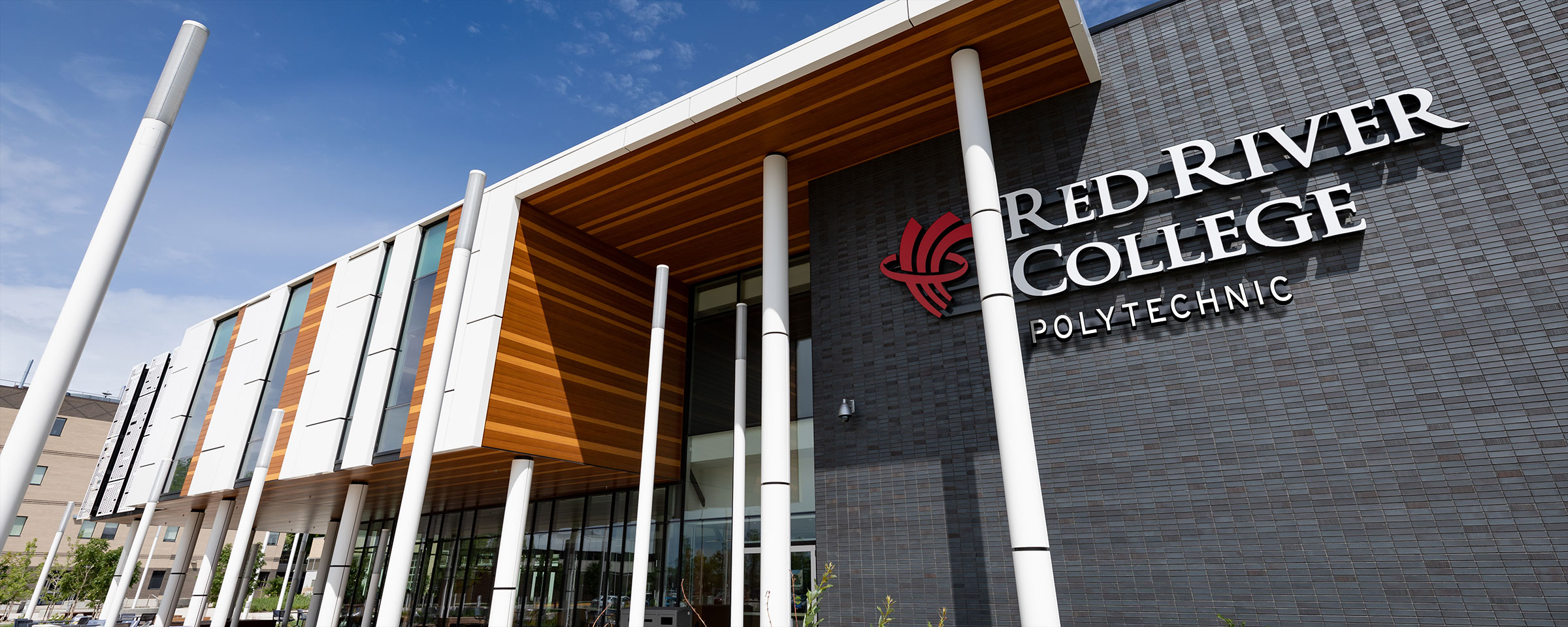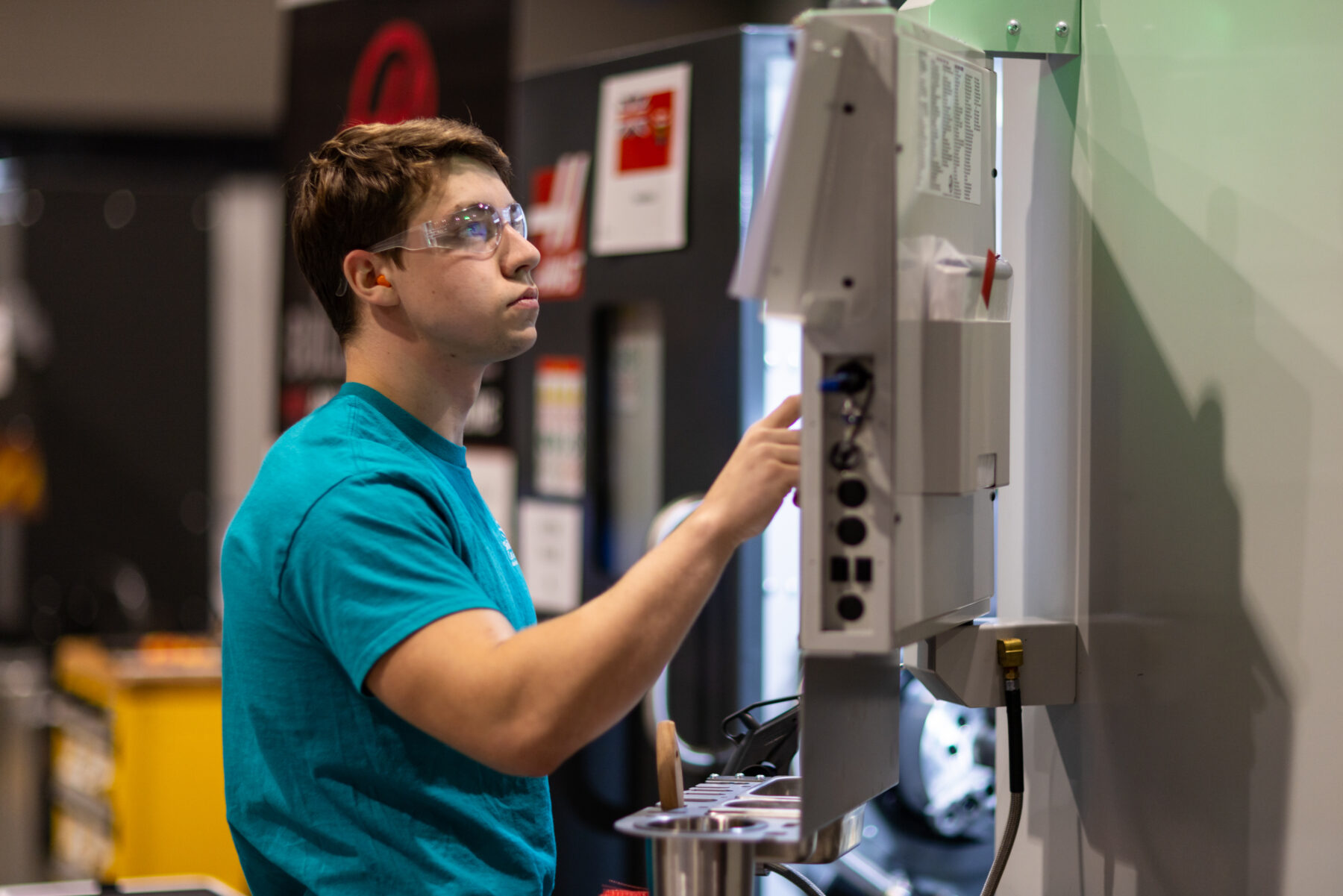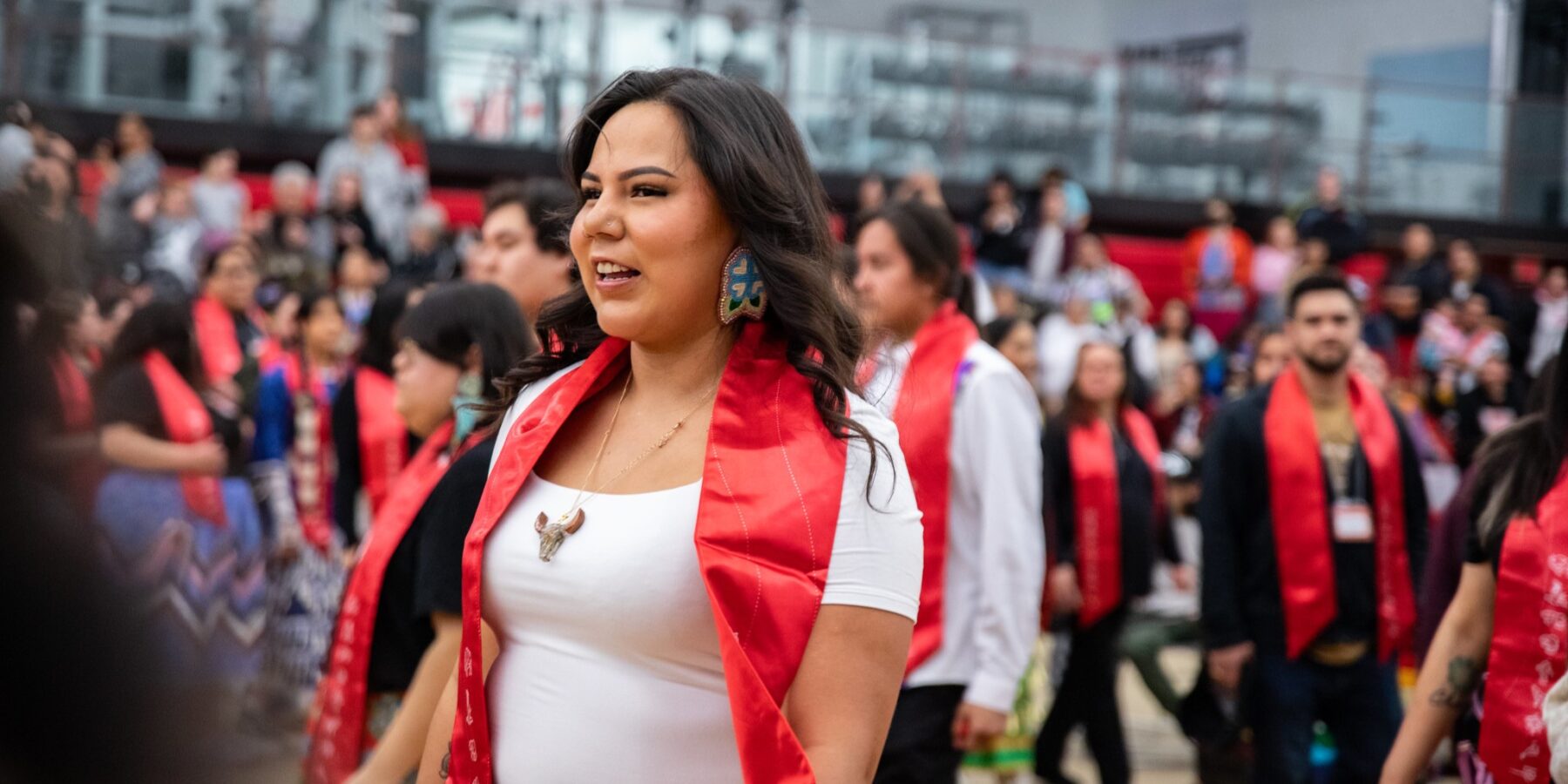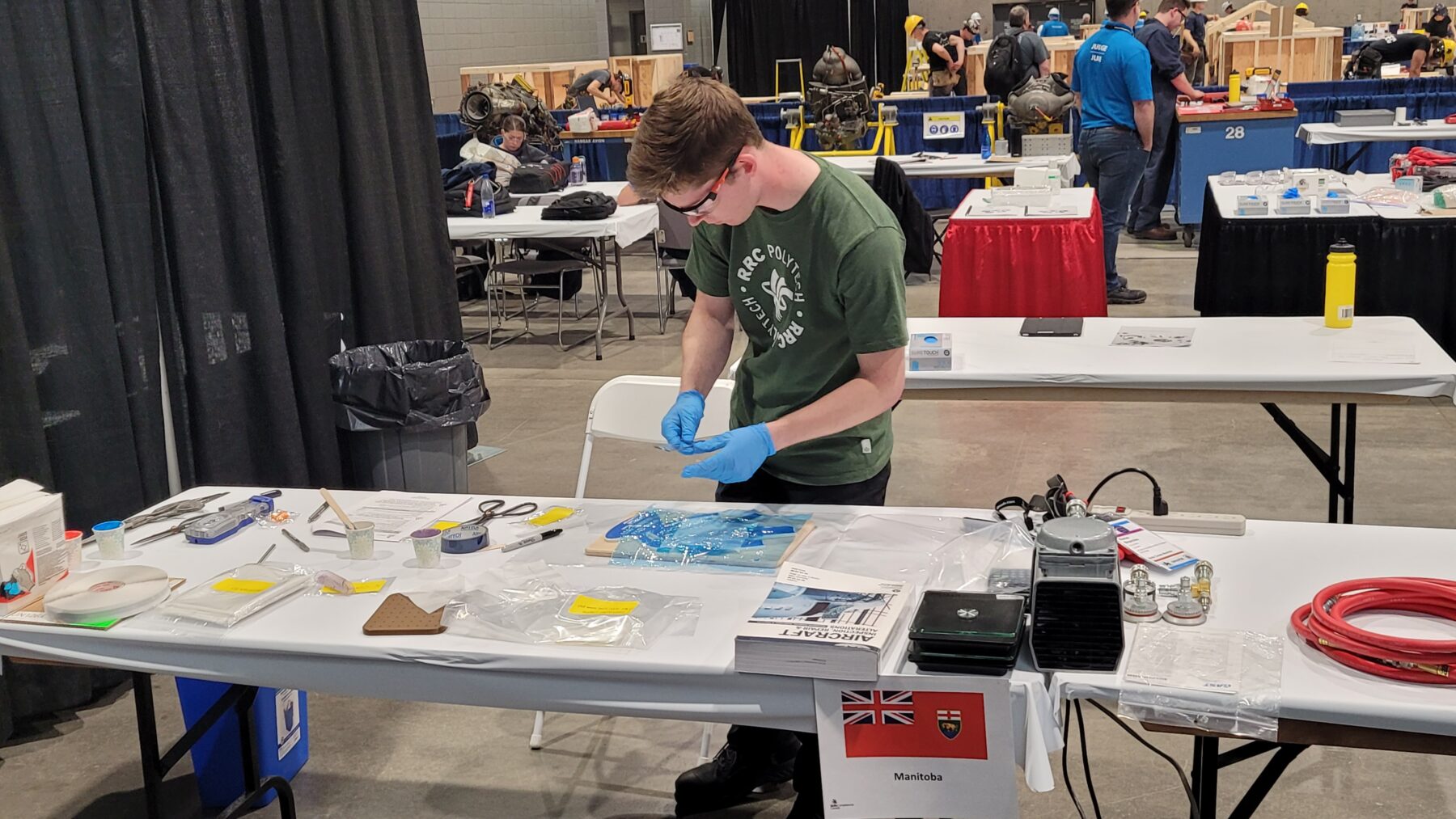RRC Polytech culinary arts students take home gold at Taste of the Blue Bombers
When the Blue and Gold called with an exciting opportunity to participate in a culinary competition, RRC Polytech answered. Melissa Hryb, Culinary Arts instructor, who is no stranger to competitions, knew her first-year students were up to the challenge of competing in this year’s Taste of the Blue Bombers: A Gourmet Tailgate.
Typically, Culinary Arts students participate in work-integrated learning in the fall of their second term, but equipped with support from Melissa and fellow instructors, Chantalle Noschese and Mandy Wingert, first-year students Shams Alam, Bianca Alfonso, Kristine Ebero, Matteo Clayton, Augmignonne (Meg) Dimatulac, Will Earle, Kaixiang (Eric) Huang, Jianhua (Sherry) Huang, Dominic Ladyka, and Mingye (Mary) Ma set their sights on the podium at Princess Auto Stadium as the only student team participating against 12 local restaurants and bakeries.
“I wanted my students to see that while competitions can be intense, they’re also really fun and rewarding,” said Melissa.

With the theme of “tailgating” students spent two days chopping and prepping for their culinary creation – barbecue pulled pork with crispy onions and loaded baked potato salad, topped with an RRC Polytech paprika tuile. Everything was handcrafted from scratch, including a signature barbecue sauce and the tuile topper – a fancy cracker – was made using a custom 3D-printed mould.
On May 23, 600 hungry guests circled the stadium with their Taste of the Blue Bombers passports in hand, stopping by each station to sample signature dishes. After sampling, guests scanned a QR code to vote for the fan-favourite dish in the restaurant or bakery category.
The event was an opportunity for students to share their signature pulled pork dish with guests, tour the stadium’s kitchen, and meet chefs working in the industry.
“It’s always beneficial for students to get outside the lab and be immersed in hands-on learning in community. The competition also gave the 10 student participants the chance to meet alumni and their future industry colleagues,” mused Melissa.
While it was a long day, starting around 8:00 a.m., all students were nothing but smiles after their signature dish was a touchdown, taking the top spot as the fan-favourite dish in the restaurant category.
“Taking home a win was great, but the true cherry on top for me was seeing my students growing more confident in themselves, interacting with guests, and still smiling as we loaded up dirty dishes at 9:30 p.m.”
RRC Polytech prepares the next generations of influencers in the fields of culinary arts and professional baking. Learn more about the Culinary Arts, Professional Baking and Pastry and Culinary Skills programs at rrc.ca/explore/culinary






















